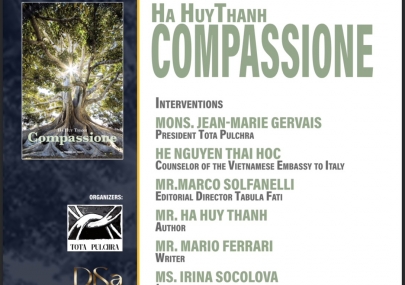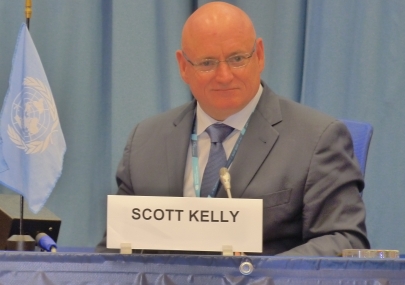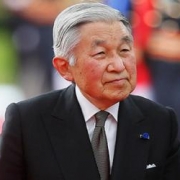WAJ would like to present the perspectives of international experts from Canada, Switzerland, the Russian Federation, and the Republic of Austria in this section.
1. Prof. Luis Silva – Lecturer in Economics in Toronto, Canada

Prof. Luis Silva – Lecturer in Economics in Toronto, Canada
The World Health Organization recently announced that the COVID-19 pandemic is nearing its end. This news represents a watershed moment not only for the world, but also for Vietnam. And now is the time to devise an economic recovery strategy for a brighter future.
Vietnam's macroeconomic situation can be improved by implementing policies that combine recovery and long-term development. Vietnam, for example, has oil reserves, but fossil fuels will become obsolete in the new era as consumers and industries in many countries shift away from polluting energy sources and toward cleaner energy sources. The Vietnamese government may consider putting oil revenue into the national reserve fund in order to fund the development of clean energy sectors in Vietnam, such as solar and wind power.
Furthermore, the Vietnamese government may consider aligning tax policy with economic goals. For example, the government could consider lowering the sales tax on electric vehicle purchases in order to increase consumer demand for these vehicles. To compensate for the loss of government revenue, a higher sales tax on the purchase of oil-powered vehicles can be imposed, reducing consumer demand for these types of vehicles. Vietnam's goal is to become a high-income economy by 2045 and to achieve net zero emissions by 2050. And Vietnam is likely to meet these targets on time.
2. Dr. Irina Korguna - Head of Asia Center at the Institute of Economics, Russian Academy of Sciences

Dr. Irina Korguna - Head of Asia Center at the Institute of Economics, Russian Academy of Sciences
My name is Irina Korguna, and I'm the Head of the Asia Center at the Institute of Economics, Russian Academy of Sciences, and I'm very honored to be invited to share my thoughts on the macroeconomic stability and sustainable development of Vietnam. As far as this question concerns what I perceive as macroeconomic stability for Vietnam, is it a very close link to Vietnam's economic growth this year? So far, we've seen a very strong economic rebound in Vietnam's economy following the recovery from the COVID-19 pandemic and very strict lockdowns. But even as it grows, I mean, Vietnam's economic growth reached more than 7%. There are even stronger challenges ahead for Vietnam, and these challenges are linked both with the international environment and also with certain domestic challenges. And all of these demands require different approaches, because some of these issues are long-term, some are short-term, and some are mid-term. So different policy instruments are needed.
So let's start with the international environment, where there are greater risks at the moment. So we see inflationary pressure, we see a possible stagnation for major export markets like the EU and the US, and we also see another commodity shock. It may happen or it may not happen, but the risk is very high. And so it is important to prepare for these sorts of risks. Since inflation is worldwide, Vietnam cannot stay away from it, and there is very little that can be done to counter inflation internationally. Now, of course, Vietnam is self-sufficient in major agricultural products, which diminishes some inflationary pressures on products like wheat and something like that. This is a good thing.
So to be self sufficient in production of agricultural products, but also inflation can be transmitted through higher energy prices, through higher, like metal prices, and it can affect incomes of many people and the buying capacity of many people.In that regard, it is important to improve the incomes of less advantaged layers of the population. So people who are at the lowest traitor of this society need to be provided with safety nets, maybe more stable income or some state jobs that can guarantee their minimum wage, so that they go on consuming.
Let's turn to another risk, which is the possible recession in major export markets. Well, it's a huge risk for Vietnam because its trade dependency is more than 100%. Well, in this case, the answer is to look for other export markets. Here, Vietnam has a potential of ASEAN economic community, so to redirect certain experts to these markets, to India, which is picking up now, so more regional copperation, but to the best of my knowledge, Vietnam is doing this already. So I think it's a good path. And another important element in this mix would be more domestic consumption. So to rearrange certain industries from expert-only styles of production to domestic demand. So this is quite important.
Apart from this, we also have to think about the budget, because if we increase, for example, social spending and provide more jobs for less advantaged people. It means that there will be greater pressure on the government budget, and with lower incomes from exports, it's a very serious risk. So in this regard being prudent in spending and balancing spending and incomes is very important to keep track of your spending. But what I also would like to address is our longer-term issues, because this situation that we are having now is more or less midterm. But Vietnam has longer-term challenges to face, and these challenges are technological development and labor, which means that today Vietnam's competitiveness is based on cheap labor. But as Vietnam's economy continues to develop, income will rise. It means that the cost of production will rise, and Vietnam will have to transition from products with low value added to products with high value added. And this transition requires adequate labor supply and requires also important technological advancements.
So while there are risks of inflation and everything else, it is important for Vietnam to keep spending on its innovation capacity so that it can transition in its economic model, smoother invest in education, to engage young people to get education adequate for the coming challenges. Because the industries will change in the future, we see a big technological shift towards more AI, towards computing, and towards big data. These are professions for the future. And so it is important to provide an adequate supply of people with these skills so that the Vietnamese economy remains resilient not only in the face of today's challenges but also in the face of future challenges.
3. Dr. Patrick Horvath – Secretary General “Foundation for Scientific Economic Policy WIWIPOL”

Dr. Patrick Horvath – Secretary General “Foundation for Scientific Economic Policy WIWIPOL”
We are very much interested in the development of Southeast Asia, which we think is very important for the future of the whole world economy. It is a great honor to be invited to present some suggestions for strengthening the Vietnamese economy after the COVID crisis. And I'm very happy that this conference puts a special focus on the topic of sustainability, which I think is very important for the future of our planet.
I think that the Austrian and Vietnamese relationships can be very important to overcome the crisis in both countries. And if we improve it, I believe that the two countries can overcome the crisis together. Trade relations between Austria and Vietnam are on a very good track. The trade balance is highly positive from the perspective of Vietnam. Vietnam earns about 1 billion euros a year from trade relations with the Republic of Austria. There is another field where there is huge unused potential, and this is the field of direct investment, especially industrial investment. You must know that Austria is a leading industrial nation, a highly industrialized country that hosts many world market leaders in a certain industrial field. Only 50 enterprises from Austria are active in Vietnam. There are only 15 production facilities at the moment. And I think that given Austria's high potential in the field of industry, so much more would be possible. If you want to convince Austrian enterprises to invest in Vietnam, I think that more communication and more information are necessary. The Chinese have set up so-called business associations in Austria. Their board is made up of locals who, of course, speak German, do business with China, and serve as public testimonials for the amount of money invested in China. I think that this is a very interesting tool that can also organize investment conferences. And I think that Vietnam should take into consideration setting up such business associations that closely cooperate with the Embassy. I think that there's a huge potential, and I think that commercial diplomacy today must rely more actively on communication and also on public information than in earlier decades.
My second suggestion was already made in the online publication, Voice of Vietnam. I think that Vietnam currently faces one dilemma. There's huge economic growth in the country, and I'm very impressed by the high dynamics of the Vietnamese economy. Unfortunately, this economic growth that is so important to guarantee the future wealth of the country also damages the environment to a certain extent. I think that one dilemma will be how to keep up the high growth, how to produce wealth for the people, and at the same time preserve the rich natural treasures Vietnam has. I think that Austria can help. Austria is a world market leader in environmental technology, and innovation can be a way out of the dynamo. I think Austria should support Vietnam with intelligent, smart solutions for urban development and environmental protection. A green partnership between Austria and Vietnam could also involve partnerships between zoos and national parks. And I think that there's a high potential for research projects in this field.
My third and most important suggestion for strengthening the Vietnamese economy is another field, and I think the key to sustainable development is education. Vietnam is blessed with so many young people with high potential, and I think it is important to invest in these young people. I'm a volunteer for an organization called Asia in Vienna, and we are in very close contact with the Vietnamese Student Association here in Vienna. We organized free tickets for concerts for the students so that they could enjoy Vienna's culture without having to bear financial costs. And in the future, we will also organize career events that will advise Vietnamese students about how to write a good CV or how to make a career in an international company.
But what is really important, I think, is investing in the future. And I'm always shocked to see that there are so few possibilities to obtain a scholarship for studying abroad. I think that fundraising in this field is very important. We have to find partners in the private economy to help Vietnamese young people develop. If we invest in young people in Vietnam, if we can give them a good education abroad, they can one day come back, bringing their knowledge back to Vietnam, and build this country up and create a new dimension of wealth. And I think that this is what Vietnam deserves—wealth and prosperity. And I hope that the Austrians can support it. Thank you very much.
4. Expert Jürgen Angleitner, Project Manager Environment and Sustainabiliy

Expert Jürgen Angleitner, Project Manager Environment and Sustainabiliy
Ladies and gentlemen, it's a great honor for me to contribute to the Vietnam Socioeconomic Forum this year, and I thank very much the Vietnam National Assembly television for giving me this opportunity. My name is Jurgen Anglerna. I'm an Austrian citizen currently working in Switzerland for the building and construction industry. My profession is environmental engineering. So let me give a few ideas about why, in my opinion, Vietnam will be very important in the near future. In my opinion, regional sustainable development is, in many regards, of the utmost importance.
First of all, regional energy must be strengthened. Regional energy production must meet the needs of regional consumption, and vice versa. Smart grids are certainly the solution for that. And I'm convinced that Vietnam will be better off if it focuses on the strength of the energy available in the region, so that it will be independent of energy supply in the end. Sustainability is also important with regard to food production and agriculture, and the food supply from the region should be strengthened. And I'm sure that this will create more independence.
Another point I would like to mention is sustainability in transport and mobility, and last but not least, sustainability in housing. There's also the issue of building with local materials in such a way that cooling doesn't consume a lot of energy. In general, the main issue for socioeconomic issues is sustainable development. And I would be very happy to support you in the one or other aspect if it's required, and it would be a great pleasure for me. I wish you all the best for your forum and many interesting discussions. I wish you a good outcome and above all, a good and sustainable development of Vietnam. Thank you so much.
EU, August, 2022
Coordinator of implementation, Dr. Yen Platz
(Representative of WAJ in the UN at Vienna, Austria)
PROMOTED

On the anniversary of Hung King's death anniversary (March 10, 2022 in lunar calendar), the overseas Vietnamese community in more than 30 countries around the world will jointly organize an online event: "Global Vietnam National Ancestor Day 2022 - Ancestor's death anniversary and honor the descendants of King Hung globally".
Dr. Yen Platz- Young translator conquers the ancient Greek classic Anabasis – Memoir of the Persian Expedition
- Austria news - Usama Nosshy channel covers Asean's 55th anniversary celebrations at the United Nations in Vienna
- VietnamPlus Newspaper reported about ASEAN's 55th anniversary at the United Nations in Vienna
MOST VIEWED
The two Kings Philippe and Van der Bellen havedifferent backgrounds, one is of royal origin, and the other is a child of a refugee family (once of noble origin) but now, in the eyes of the European public, both of them are giving off a sense of courtesy, virtue and erudition.
WAJWith the attendance of many international figures, the 80th anniversary of the end of World War II was celebrated at the United Nations headquarters.
Journalist Usama Soliman



















Comment